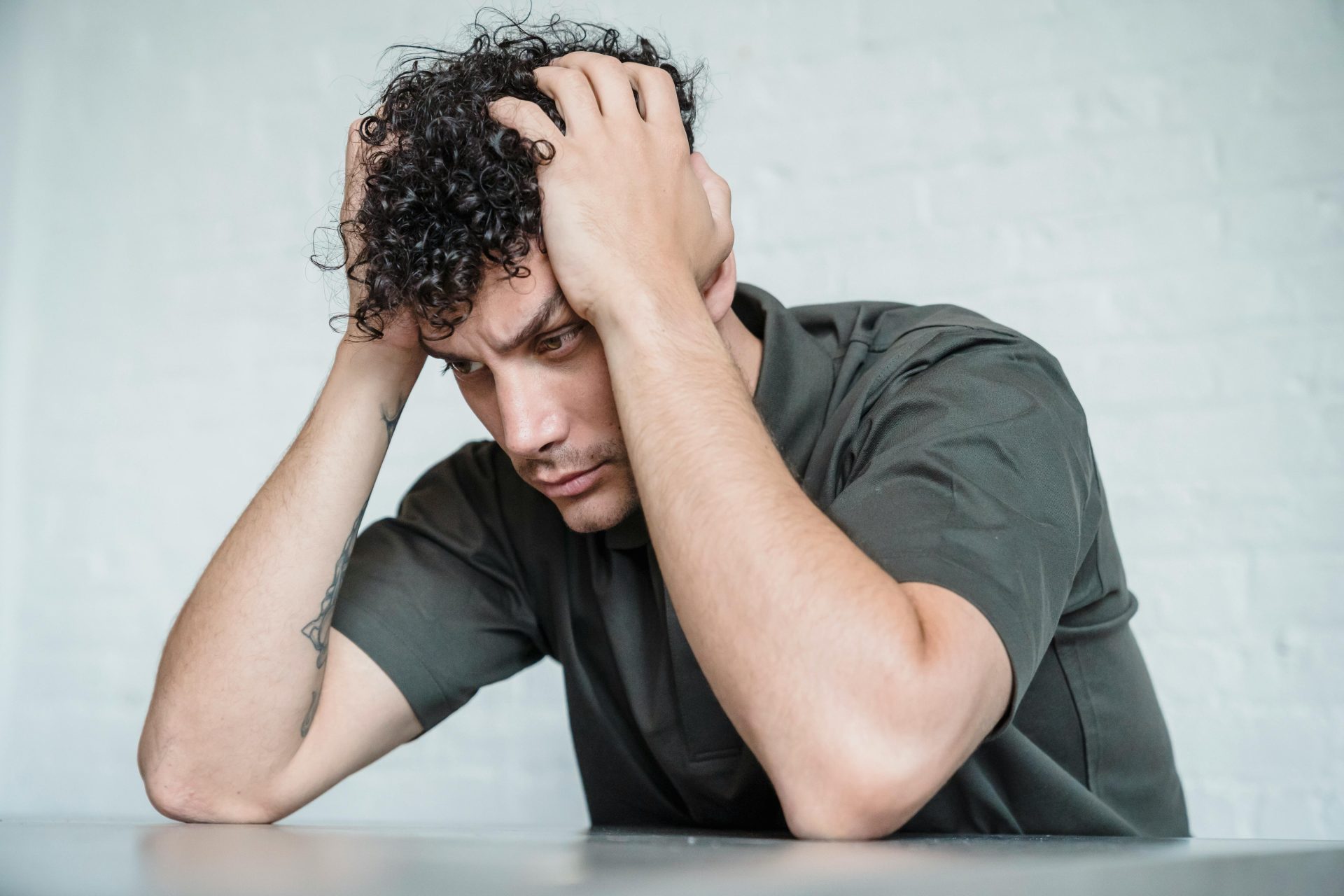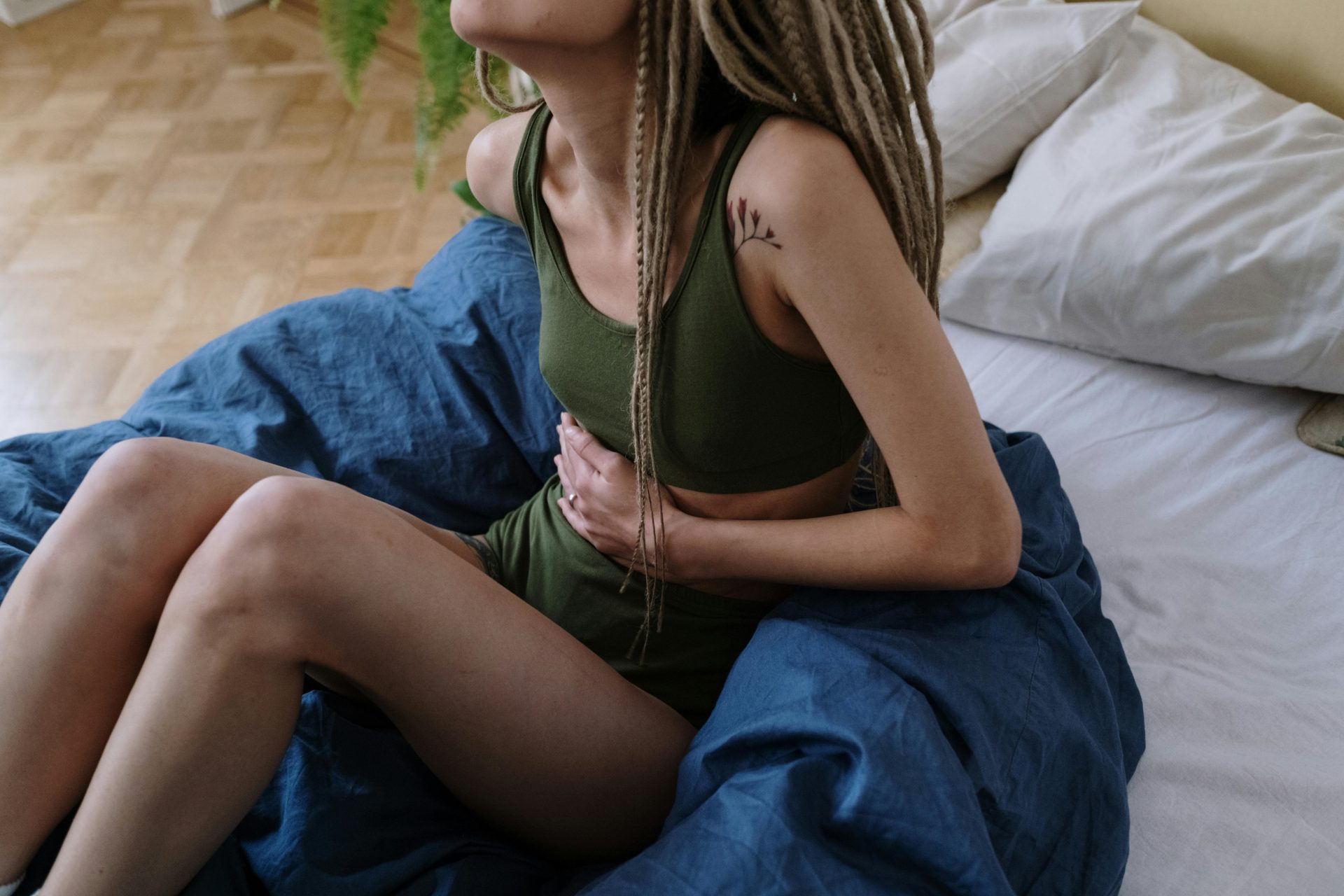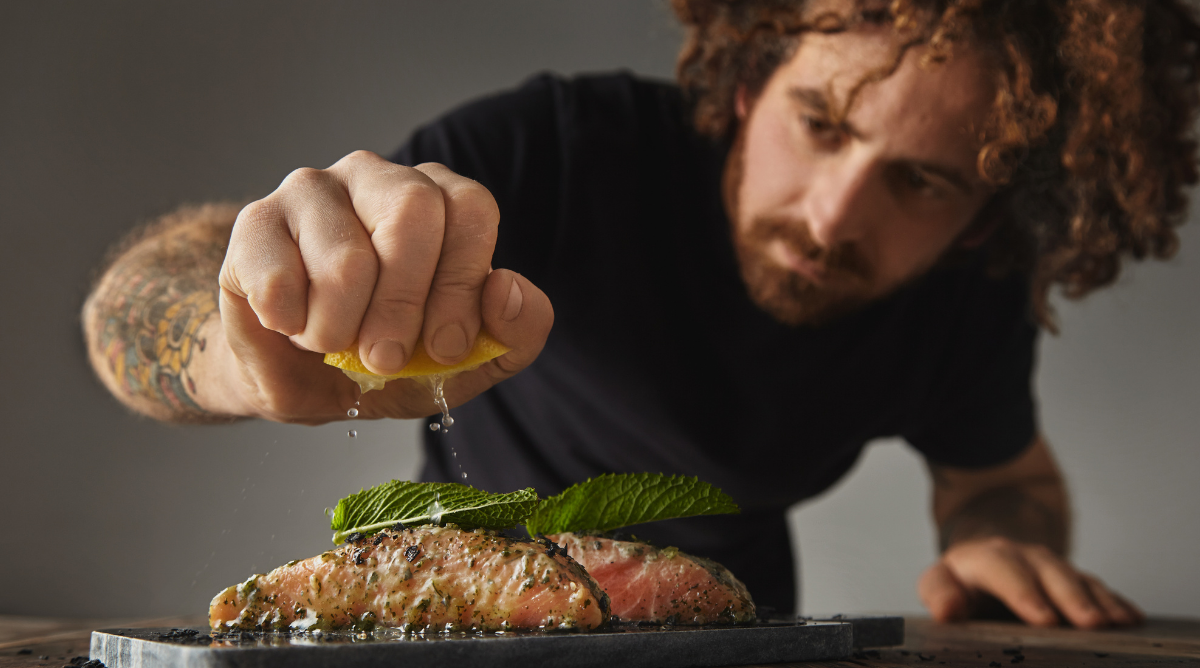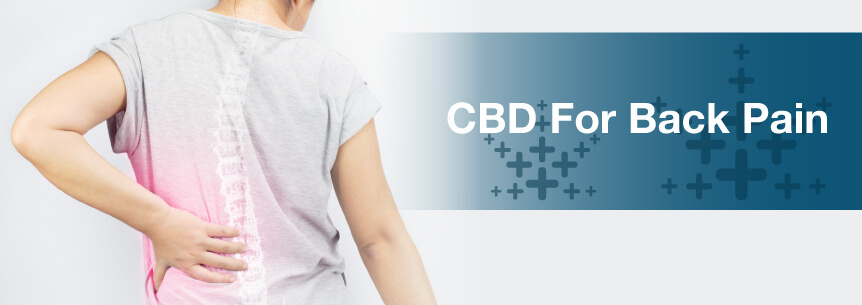For many, anxiety isn’t just a feeling of worry; it’s a severe and debilitating condition that profoundly interferes with their daily lives. From social interactions to work and even sleep.
It’s not just a fleeting feeling of nervousness; it can manifest as a constant state of tension, leading to physical symptoms, panic attacks, and a withdrawal from activities once enjoyed.
Why Do People Try Cannabis For Anxiety?
When conventional coping mechanisms and routine treatments fail or cause too many side effects, many people turn to medical marijuana for relief. They often seek a medical card because cannabis interacts directly with the body’s own regulatory systems.
Researchers now back the growing use of cannabis for anxiety with a deeper understanding of the endocannabinoid system (ECS)—a key network of receptors in the brain and body that regulates mood and stress.
The compounds found in cannabis, like cannabidiol (CBD) and tetrahydrocannabinol (THC), can interact with the ECS to help restore balance in physical and mental health. Cumulative studies consistently show that CBD has a calming effect, while small doses of THC may ease anxiety.
This intricate interaction provides a strong medical basis for using cannabis to manage the symptoms of various anxiety disorders.
Can You Get A Medical Marijuana Card For Anxiety?
It is possible for individuals to get a medical marijuana card for anxiety. The process involves a consultation with a certified healthcare provider who can evaluate your condition, review your medical history, and, if appropriate, certify you for the state-based program.
Navigating this process of obtaining a medical card for anxiety may seem complex, as the regulations are not the same across all states and regions. Getting this card depends on where you live and the specifics of your condition, as laws are constantly evolving to reflect new research and patient needs.
In a growing number of states, anxiety and related disorders are now explicitly listed as qualifying conditions. This means that if you have a formal diagnosis of a condition like generalized anxiety disorder or PTSD, you can be certified for a medical marijuana card.
However, in many other places, the process is less direct. Instead of a pre-approved list, some states allow for a more flexible approach, giving physicians the discretion to recommend a medical card for any condition they consider “debilitating” or chronic.
In these locations, a doctor who sees firsthand how your anxiety limits your life — through severe physical symptoms, social withdrawal, or an inability to function normally — can make the judgment call that medical cannabis may provide relief. This approach is more patient-centered, acknowledging that the impact of a condition, not just its name, is what truly matters.
Do All States Approve Anxiety As A Qualifying Condition?
The truth is that not all states officially approve anxiety as a qualifying condition.
This is because when it comes to getting a medical marijuana card for anxiety, not all states have the same rules. So, although a growing number of states have added anxiety disorders to their list of approved conditions, others have not.
For example, some states, like Texas and Georgia, have very strict lists of qualifying conditions that often only include severe illnesses like cancer, epilepsy, or chronic pain, leaving out most mental health conditions altogether. In these states, a person with anxiety would likely not be able to get a card unless they also have one of the other conditions on the list.
However, even in states where anxiety is not officially listed, there may still be a way to get a medical card. Some state programs allow physicians to recommend medical cannabis for any “debilitating” condition that they believe will provide therapeutic relief. This gives doctors the power to make a judgment call based on how a patient’s anxiety impacts their daily life. States like Utah and New Hampshire have taken this more flexible approach, recognizing that the impact of a condition matters more than its name on a pre-approved list.
How Does Medical Marijuana Help With Anxiety Symptoms?
The way medical marijuana helps is by calming the body and mind, reducing physical tension, and improving sleep quality, all of which are common symptoms of anxiety.
The mechanism of action is centered on the ECS, which is involved in regulating mood, stress, and emotions. The compounds in cannabis, called cannabinoids, interact with the ECS, which is the key to its therapeutic effects.
The two main cannabinoids, THC and CBD, work very differently. CBD has a calming effect and can reduce anxiety without causing a “high.” It appears to work by increasing endocannabinoids and influencing serotonin receptors, which are the same targets as many conventional antianxiety medications.
CBG may work similarly even at much lower doses than CBD, an exciting new area of cannabis research now being investigated. A first-of-its-kind 2024 double-blind RCT finds that just 20 mg of hemp-derived CBG relieved anxiety in a small group of healthy adults. However, they didn’t have anxiety disorders and the overall data behind CBG are yet much smaller than that of CBD or THC .
But for THC, low doses may provide a sense of relaxation and ease tension. However, higher doses can actually increase anxiety, paranoia, and heart rate. This dose-dependent response is why many strains with a balanced CBD-to-THC ratio or products that are high in CBD or CBG are preferable.
Beyond cannabinoids, the plant contains other compounds like terpenes, which may also contribute to the overall therapeutic effect.
What Type Of Anxiety Diagnoses Qualify For A Medical Card?
The specific anxiety diagnoses that qualify for a medical card may vary significantly by state. This is because a particular diagnosis that qualifies in one state may not be recognized in another.
In many states, anxiety is not a single diagnosis on the qualifying list. Instead, it is often a broader category that can include several related mental health conditions. For example, many states recognize a wide range of anxiety diagnoses that might qualify a person for a medical card — such as generalized anxiety disorder (GAD), social anxiety disorder, and panic disorder.
A specific and very common condition that is frequently diagnosed is post-traumatic stress disorder (PTSD). States often list PTSD as a qualifying condition due to its debilitating impact on a person’s life, which often includes symptoms like severe anxiety, panic attacks, nightmares, and sleep disturbances.
As earlier discussed, in states that do not have a specific, pre-approved list for mental health conditions, the decision is left to the discretion of a certifying physician. In these cases, a diagnosis of a severe anxiety condition that has a documented history of being resistant to conventional treatments may be sufficient to qualify. The emphasis is less on the name of the diagnosis and more on how the condition limits the individual’s ability to function. Therefore, a person with a diagnosis of a less common anxiety disorder may still be able to get a card if their doctor can demonstrate that it is a “debilitating” condition.
Do You Need A Formal Diagnosis Of Anxiety To Apply?
Yes, a formal diagnosis of anxiety is an important requirement for applying for a medical marijuana card if you don’t have another qualifying condition. A certifying healthcare provider needs to be able to verify your condition to recommend you for the state’s program, and a formal diagnosis provides the necessary medical documentation.
Even in states where a doctor can recommend a medical card for any “debilitating” condition, a formal diagnosis is still needed, but the criteria may be less rigid. The doctor will need to evaluate how the anxiety symptoms severely impact your daily life, and a documented medical history of the condition provides the necessary proof.
Also, in many cases, patients are expected to show that they have tried and failed to find relief with other traditional treatments, like therapy or pharmaceuticals.
READ: Can I Get A Medical Marijuana Card For Anxiety, PTSD, or Chronic Pain?
Frequently Asked Questions
Is Anxiety A Qualifying Condition For A Medical Marijuana Card?
Yes, in a few states with a medical marijuana program, anxiety itself can be a qualifying condition. However, in most states, anxiety disorder might not be on the official list, but may qualify under a general category for “debilitating conditions” or as a symptom of a qualifying condition like post-traumatic stress disorder (PTSD).
Can I Get A Medical Marijuana Card For Anxiety In My State?
To find out if you can get a medical marijuana card for anxiety in your state, you will need to check your state’s official medical marijuana program website or consult with a qualified physician who specializes in cannabis certifications.
Do I Need A Doctor’s Diagnosis To Qualify For Anxiety Treatment With Cannabis?
Yes, you will need a doctor’s diagnosis to qualify for anxiety treatment with cannabis. Even in states that allow a doctor to certify a patient for any debilitating condition, you will still need a medical professional to document your condition, progress, and alternatives.
Does Medical Marijuana Help With Anxiety Symptoms?
Yes, medical marijuana can help with anxiety symptoms by interacting with the body’s endocannabinoid (ECS), serotonergic, and dopaminergic systems, which help regulate mood and stress. Cannabinoids like CBD, THC, and terpenes may provide therapeutic effects like calming the body and mind, reducing physical tension, and improving sleep — all of which may help with the treatment of anxiety symptoms.
What Type Of Anxiety Disorders Qualify For Medical Marijuana?
A wide range of anxiety-related diagnoses can qualify for a medical marijuana card. Many states specifically list PTSD as a qualifying condition. Other states include broader categories that often cover diagnoses like GAD, social anxiety disorder, or panic disorder.
Can Minors Get A Medical Card For Anxiety?
Yes, minors can get a medical marijuana card for anxiety, but the process is more complex and has stricter requirements than for adults. In states that allow it, a minor must have a parent or legal guardian apply on their behalf and serve as their designated caregiver. Additionally, some states require a second doctor’s opinion or the certification from a specialist, such as a pediatrician or child psychiatrist, to confirm the diagnosis and the medical necessity of cannabis.
Is Anxiety Accepted As A Condition In All States?
No, anxiety is not accepted as a qualifying condition in all states. Although a growing number of states have added anxiety disorders to their list of approved conditions, most others have not. In some states, a specific anxiety diagnosis may qualify under a broader category, such as a “debilitating condition” or as a symptom of a qualifying illness like PTSD.
What Strains Or Products Are Best For Treating Anxiety?
The most effective products for anxiety are often those that are high in CBD, CBG, or have a balanced CBD-to-THC ratio. Many people also find relief from high-CBD strains like Alternative Cannabinoid Dietary Cannabis (ACDC) and Charlotte’s Web, or balanced strains — which have a 1:1 CBD-to-THC ratio — such as Harlequin and Cannatonic.






